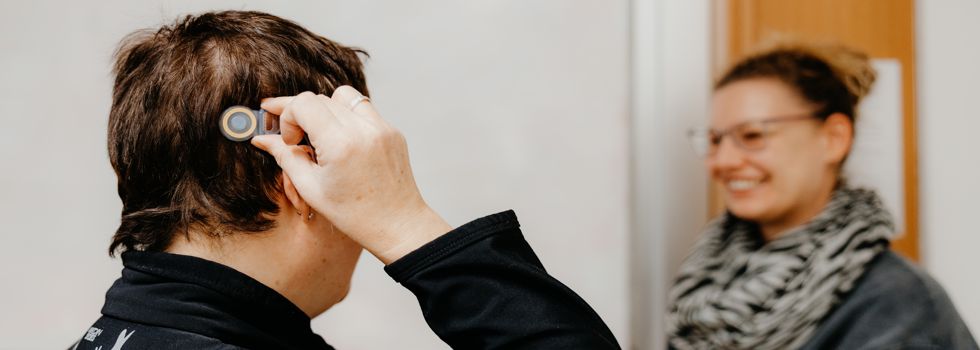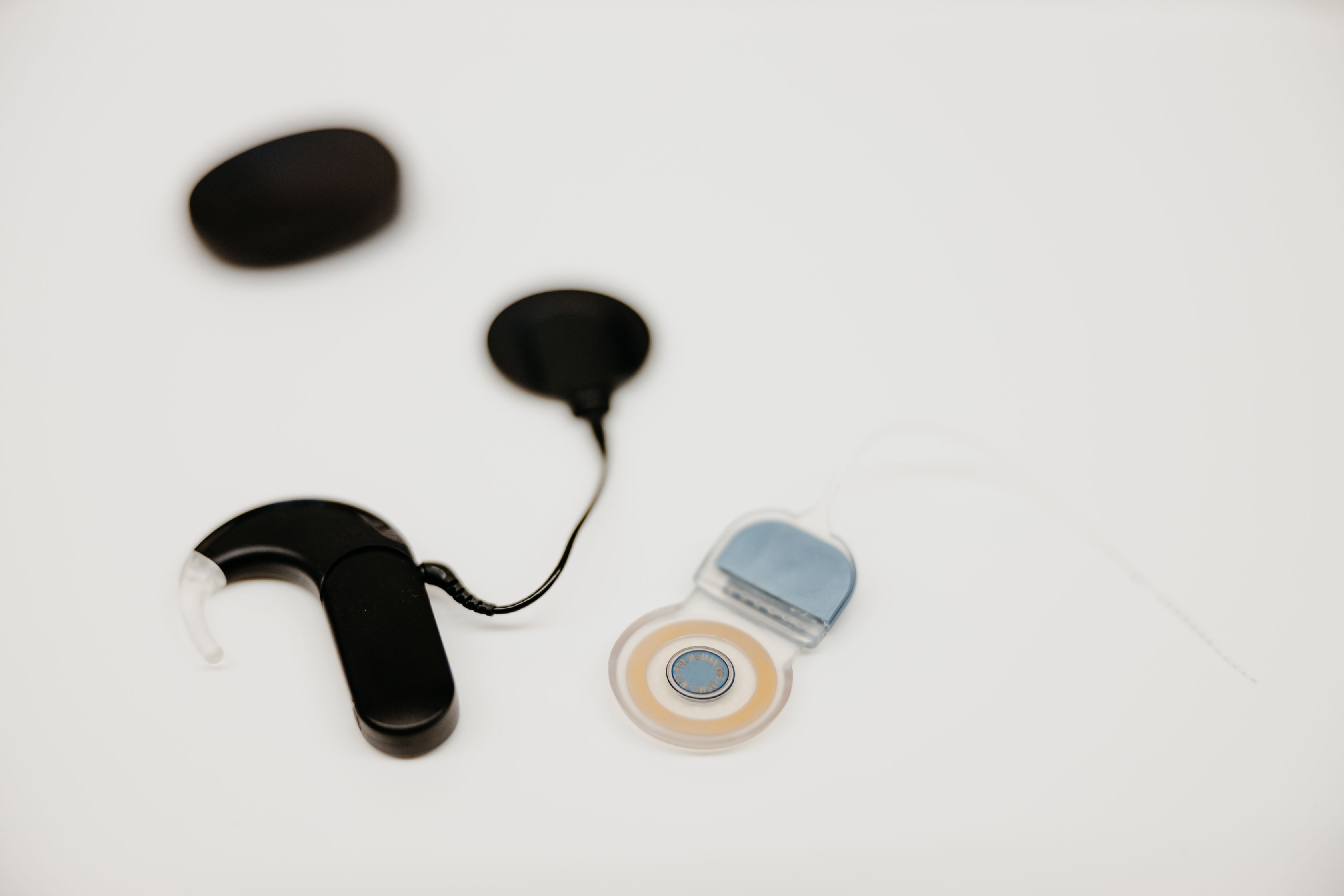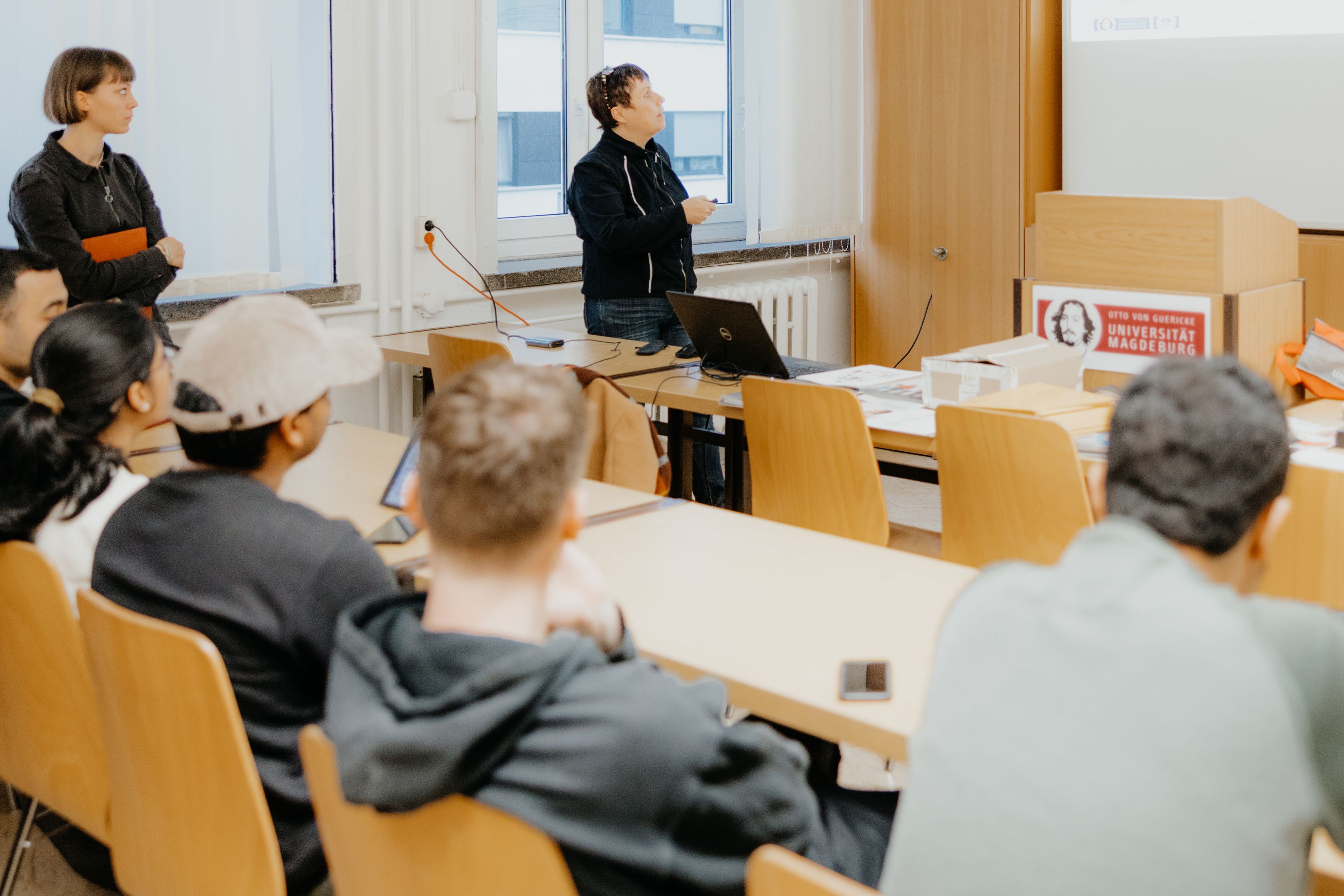Cochlea Implants - Hearing again with the help of modern medicine
Whether seeing, hearing, tasting or touching - we use our senses to perceive impressions and stimuli from the environment. For this perception, we depend on the help of certain sensory organs. Sensory disorders are not only a problem with increasing age, but can already affect children. Thanks to modern medicine, there are nowadays good therapy options for patients.
Photos: Hanna Theile (OVGU Pressestelle)
Studying in practical, interdisciplinary workshops - Biomechancial Engineering students learn all about cochlear implants in the otolaryngology seminar by Dr. Stadler
Author: Catherine Birke
Dr. Beate Stadler is a speech scientist at Magdeburg University Hospital for Otolaryngology and presented various implants for the ear in more detail to students of the interdisciplinary Biomechanical Engineering course at Magdeburg University as part of a lecture. The English-language, four-semester master's program focuses on combining knowledge from the fields of mechanical engineering, medicine, biology and movement science. In practical lectures and seminars, students learn about the complex requirements of modern medical technology, which they take into account in the development and improvement of innovative implants for different organs, such as the heart, joints or even the ear, as in Dr. Stadler’s lecture.
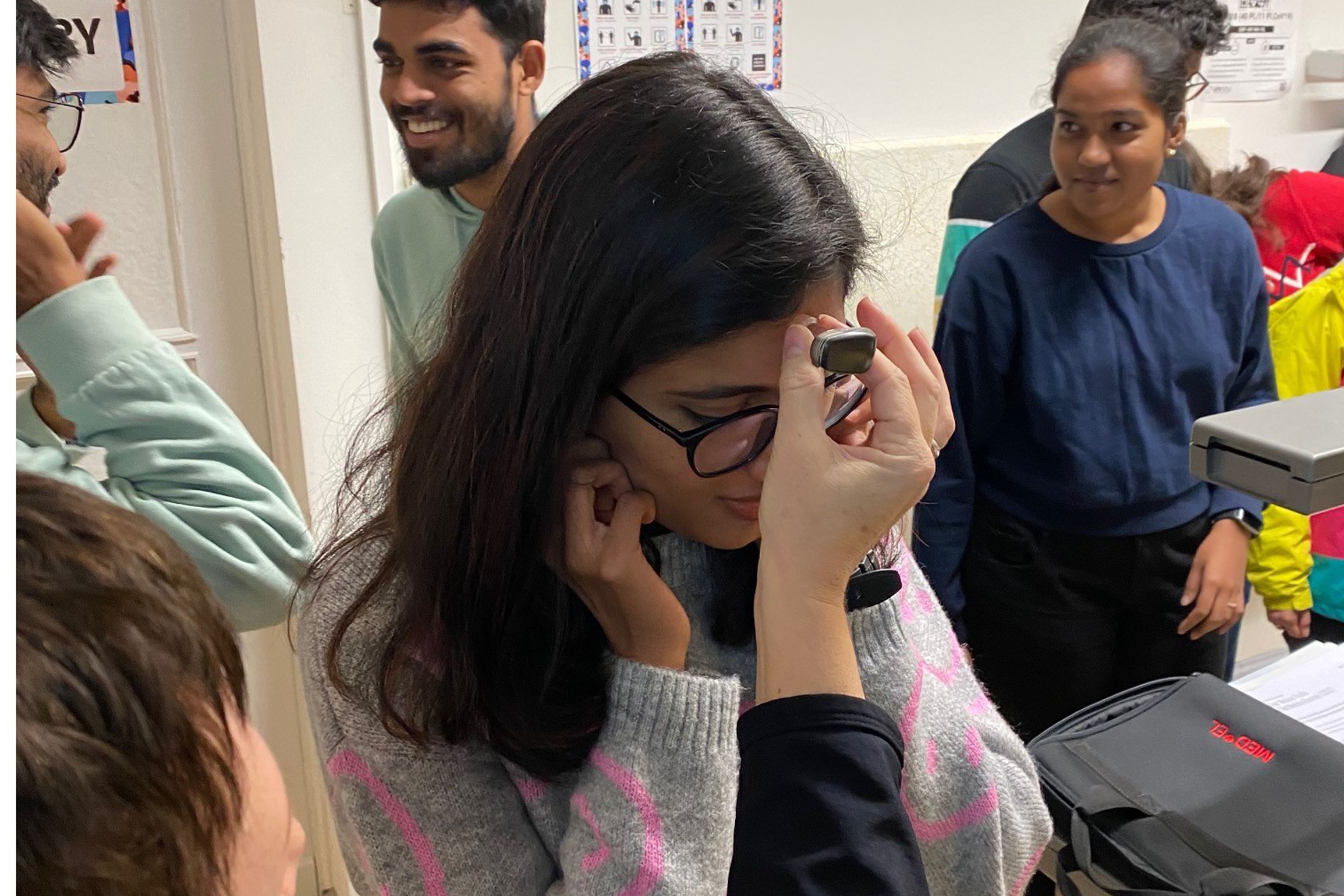 |
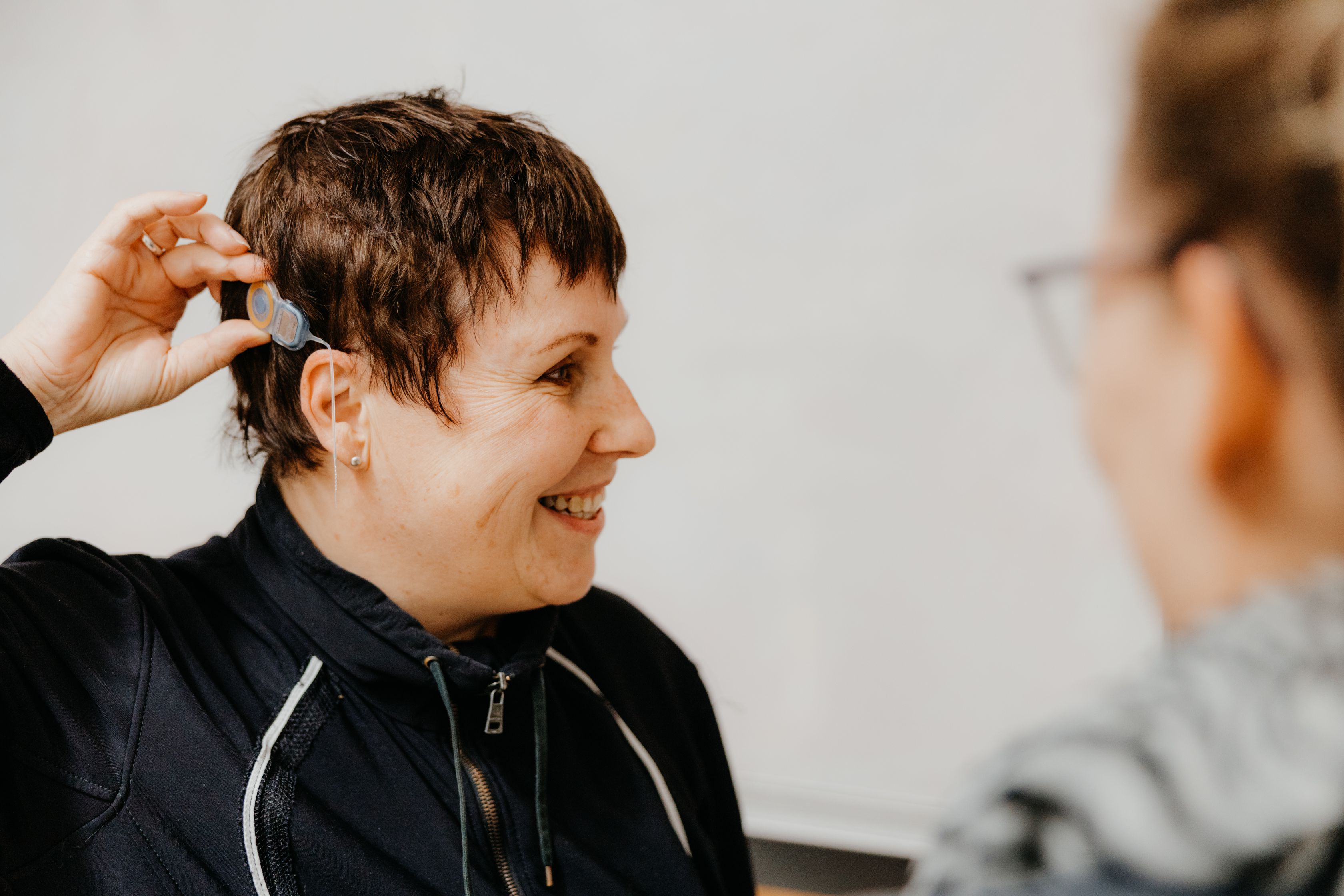 |
|
Practical hearing test on a demo implant |
Dr Beate Stadler demonstrates the placement of the cochlear implant |
Since the ear is divided into several parts, there are also different implants for different disorders, such as the cochlear implant. This is an electronic hearing prosthesis that is used for hearing disorders when the function of the cochlea has failed or is limited. In case that the auditory nerve is undamaged, the prosthesis for the inner ear functionally replaces the organ of hearing. Sound waves, which are converted into electrical impulses, then stimulate the auditory nerve in the cochlea. "Cochlear surgeries have been performed at the University Hospital in Magdeburg since as early as 1992," explains Dr. Stadler. Graduates of Biomechanical Engineering are qualified to work, for example, in research, design, development, service as well as monitoring of medical assistance systems and medical devices, and may be able to further improve hearing prostheses in the future. What is special about the cochlear implant is that it is the first sensory prosthesis in routine clinical use. Because of the stimulus transmission through the electrode, the implant is not a hearing aid in the classical sense. After insertion, patients must learn and practice understanding words. "Since the cochlear implant is an active prosthesis, lifelong follow-up care is also necessary. Patients then come to the clinic once a year for a checkup," explains Dr. Stadler.
